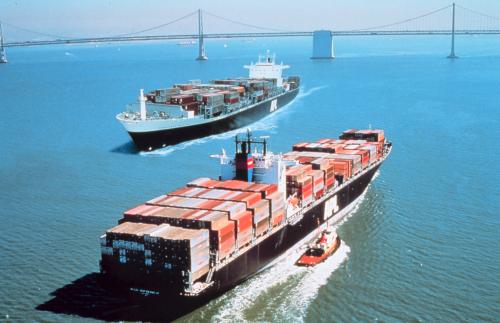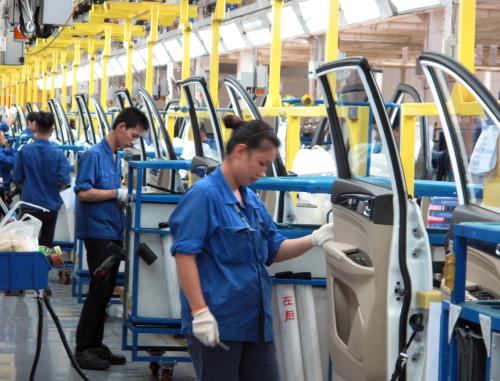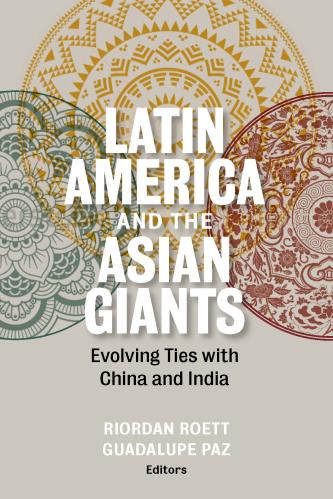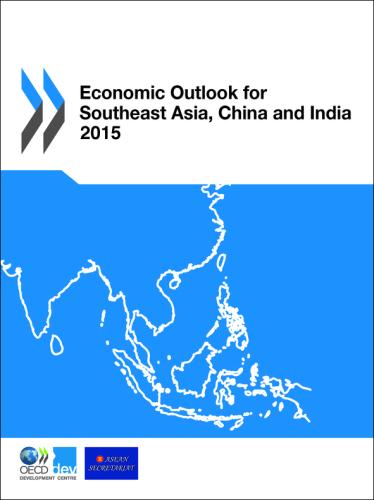Content from the Brookings Institution India Center is now archived. After seven years of an impactful partnership, as of September 11, 2020, Brookings India is now the Centre for Social and Economic Progress, an independent public policy institution based in India.
Visiting Scholar Geethanjali Nataraj participated in an interview with The Dollar Business (TDB) magazine on December 12, 2016.
TDB: Donald Trump’s victory in US election has sparked many talks on isolationisms and protectionisms. Do you see this impacting global trade policies?
Geethanjali Nataraj (GN): Earlier, it was just the proliferation of FTAs, but now it is all about the mega FTAs like Trans-Pacific Partnership (TPP) and Transatlantic Trade and Investment Partnership (TTIP). And with the Trump administration going against trade, America will be affected. Other countries may also follow suit. Protectionism will rise and, I think, mega FTAs will be dropped. I think more countries will sign bilateral deals with countries that they have some interest in and India is also going to do the same. Since TPP has not gone through as of now, India has more time to prepare for more internal reforms such as Goods and Services Tax (GST).
TDB: Do you think India must join Regional Comprehensive Economic Partnership (RCEP) despite what is happening with the TPP?
GN: Even if RCEP goes through, its significance has declined. But then, RCEP is the only big regional trade deal that India is a part of. So, it is more or less beneficial for India to be a part of RCEP than to be in isolation. But, in the long-run, I don’t think it will serve any purpose. It would be better for India to sign bilateral deals with countries that it has specific interests in.
TDB: Leaving aside India, do you think China will emerge as a strong leader with RCEP and develop trade ties with African and Latin American countries?
GN: Yes! Since TPP does not have US in the equation anymore, countries like Australia and Japan may ask China to become a part of it. Japan can lead TPP without US, but now, if Australia wants China to be a part, China can take the lead in all of this – including China’s own initiatives like the ‘One Belt, One Road’ initiative. So, you really cannot do much without China!
TDB: Do you think the North American Free Trade Agreement (NAFTA) is in trouble?
GN: Obviously, NAFTA is in trouble. These countries – Canada and Mexico – will obviously look at other agreements that US is not a part of. Everybody will try and frame their own trade policies according to the changing situation. And now that all know exports to US are not going to be so easy, US firms are not going to invest in Mexico.
TDB: How do you look at India-US trade development under Trump’s administration?
GN: There was a time when US was India’s largest trade partner – not anymore though. India’s trade no longer depends on just US – anyways our exports to US are declining. But, I think, the large-scale investments from US into India might get affected. Also, India’s service exports will get affected, not only because of Trump, but also because of Brexit. The sentiment of nationalism is growing strong in these countries and India’s services sector is really going to be hit with anti-immigration policies.
TDB: What is your take on the long-pending India-EU FTA and the potential of an India-UK FTA?
GN: India-EU FTA has been on the back burner for almost three years. Negotiations have sretarted, but EU is not giving data security status to India and India is not ready to give entry to their wine and automobile industry, so there is a problem. Of late, India is trying to negotiate something with UK – there are a lot of permutations and combinations that are being worked out, but it’s too early to comment. So, I don’t think anything is going to happen in the global trade for the next few months. I think people will allow Trump to settle down and see if he is ready to give a second look to TPP – if TPP goes through then the scenario will be very different. So, it’s wait and watch time and nothing drastic will happen in the coming months.
TDB: How would you explain the Trump phenomena?
GN: I am not an expert in this, but I think there is very little that he can do by himself. I don’t think US’s relationship with India will be affected in any way because US needs India more than India needs US. This is also because of the geopolitical situation developing in Asia and US’s deteriorating relationship with China. US is aware that India has a role to play and, I think, India will get more concessions than other countries.
TDB: FTAs have been opposed in India, especially with developed countries. What are your views on this?
GN: Many industry chambers have raised an objection to most of the FTAs. They include even the Comprehensive Economic Partnership Agreement (CEPA) between India and Japan, India-Korea CEPA, India-Malaysia CECA, etc., because India’s exports declined after signing them. So, the government has set up an expert committee under the chairmanship of Arvind Subramanian, Chief Economic Advisor, GoI, who has taken out a report on what India should be doing with these FTAs. We don’t know the recommendations, but I think India should continue to do its bilateral deals and FTAs with other countries. We can set right our policy in the domestic sector and look for new avenues outside to export our goods.
This interview first appeared in the January 2017 Issue of The Dollar Business. Like other products of the Brookings Institution India Center, this article is intended to contribute to discussion and stimulate debate on important issues. The views are of the author(s) and participant(s). Brookings India does not have any institutional views.







Commentary
Op-ed“Today, US needs India more than India needs US”
The Dollar Business
January 17, 2017